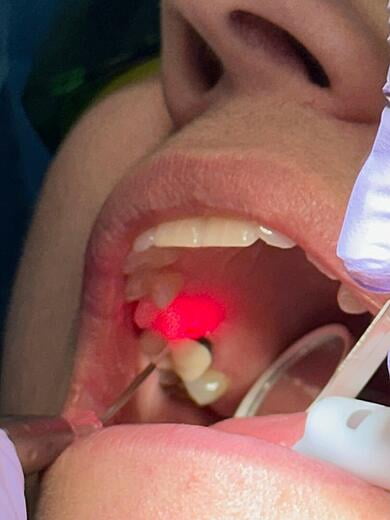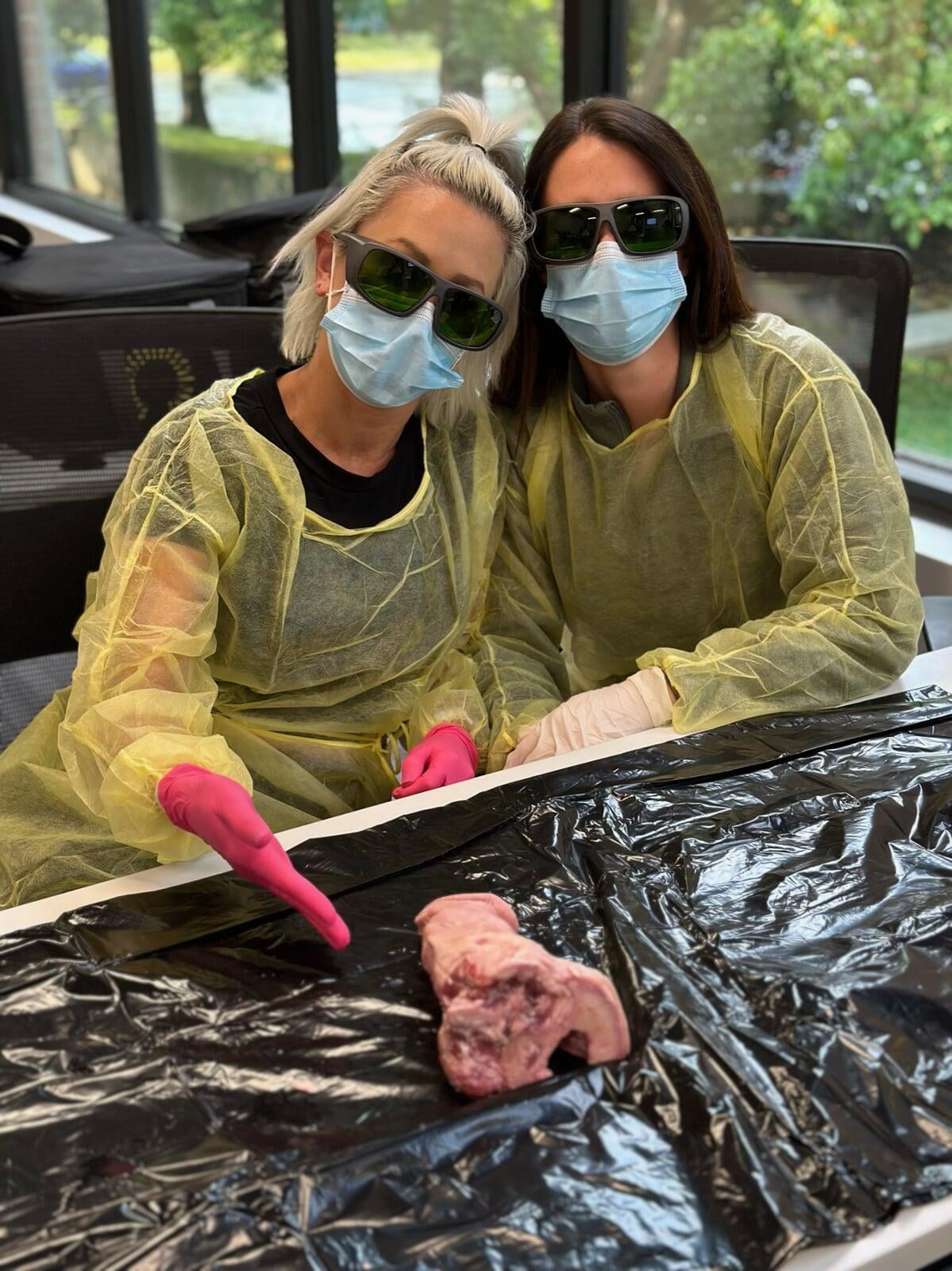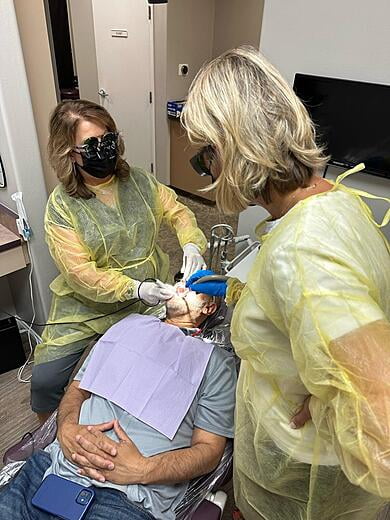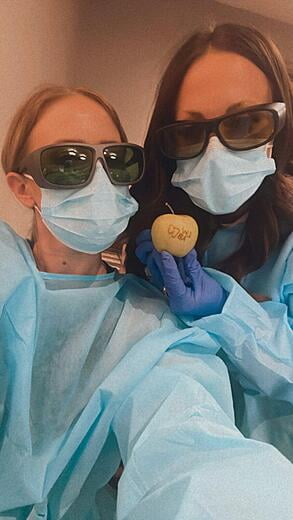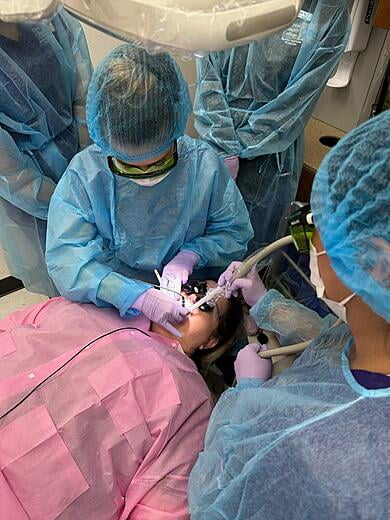Why the Laser?
The laser is a versatile tool in the dental industry. As a replacement for the scalpel, the laser creates a more comfortable experience for patients. It ensures a precise cut, minimal or no bleeding, and fewer stitches for dental procedures. The use of lasers in dentistry has brought significant advancements and benefits to both dental professionals and patients
- Bacterial Reduction: Laser wavelengths set at specific power levels can also effectively destroy bacteria because of their photothermal effect on the cell wall.
- Precision and Control: One of the most notable advantages of the dental laser is their precision. They allow dentists to target specific areas without affecting the surrounding tissues. This precise control is particularly beneficial for delicate procedures, such as shaping the gums or removing small areas of tissue.
- Reduced Bleeding and Swelling: Lasers minimize bleeding and swelling during and after procedures. The laser's ability to coagulate blood vessels as it cuts through tissue helps in controlling bleeding, which is especially useful in patients with bleeding disorders. The reduction in swelling and bleeding also leads to a more comfortable post-operative experience for patients.
- Faster Healing and Recovery: The precision and minimal invasiveness of lasers promote quicker healing. Since the laser sterilizes the area being worked on, there is a lower risk of infection, resulting in faster and more effective healing. This benefit is crucial for patients who are concerned about recovery times.
- Versatility: Lasers are versatile tools in dentistry. They are used in a variety of procedures, including gum reshaping, biopsy or lesion removal, and treatment of periodontal disease. This versatility makes them a valuable asset in a dental practice, providing solutions for a range of dental issues.
- Patient Comfort: Many patients experience less discomfort during and after laser procedures compared to traditional methods. The need for local anesthesia may be reduced, and in some cases, eliminated. This aspect is particularly appealing for patients who have anxiety about dental procedures.
- Improved Dental Health: By providing a more sterile environment and reducing the risk of infection, lasers contribute to overall better oral health outcomes. They can also stimulate tissue regeneration, aiding in the recovery of the gums and other oral tissues.
In summary, the integration of lasers into dental practices has transformed many aspects of dental care, enhancing precision, reducing patient discomfort, and improving recovery times. These benefits make lasers a highly valued technology in modern dentistry.
While some states have no educational requirements for use of the laser in dental practice, laws can vary from one state to the next. And regardless of state mandates, proper training on the laser is critical for protecting the health of your patients and your practice’s liability. Plus, an educated team with comprehensive training on the laser will only enhance your patients’ experiences and help your practice grow.
Dedicated Dental Hygiene offers training on both diode and CO2 lasers. Our goal is to ensure that each student comes away with a clear understanding of the science behind the laser and the training necessary to use this specialized tool in their daily practice. We’re committed to the student experience in laser training, and we want to play an integral role in growing your practice to its full potential.

